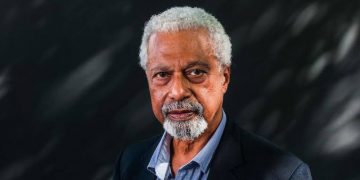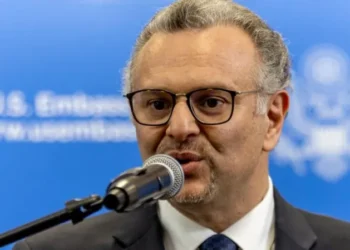By John Ikani
Tanzanian writer, Abdulrazak Gurnah has won the 2021 Nobel Prize in Literature.
The 10 million Swedish kronor ($1.5 million Cdn) prize, which has been given out since 1901, recognizes authors who have “in the field of literature the most outstanding work in an ideal direction.”
Gurnah was recognized “for his uncompromising and compassionate penetration of the effects of colonialism and the fate of the refugee in the gulf between cultures and continents.”
The 73-year-old has authored 10 novels, including Paradise and Desertion.
Upon receiving the award, he said how grateful he was to the academy, adding: “It’s just great – its just a big prize, and such a huge list of wonderful writers – I am still taking it in.
“It was such a complete surprise that I really had to wait until I heard it announced before I could believe it.”
“I dedicate this Nobel Prize to Africa and Africans and to all my readers. Thanks!
Paradise, published in 1994, told the story of a boy growing up in Tanzania in the early 20th Century and was nominated for the Booker Prize, marking his breakthrough as a novelist.
“Abdulrazak Gurnah’s dedication to truth and his aversion to simplification are striking,” the Nobel Committee for Literature said in a statement.
“His novels recoil from stereotypical descriptions and open our gaze to a culturally diversified East Africa unfamiliar to many in other parts of the world.
“[His] characters find themselves in a hiatus between cultures and continents, between a life that was and a life emerging; it is an insecure state that can never be resolved,” it added.
Born in Zanzibar in 1948, Gurnah arrived in England as a refugee in the late 1960s.
He was Professor of English and Postcolonial Literatures at the University of Kent, Canterbury, until his recent retirement.
Gurnah is the first black African author to have won the award since Wole Soyinka in 1986.
He said his award would mean issues such as the refugee crisis and colonialism, which he has experienced, will be “discussed”.
“These are things that are with us every day. People are dying, people are being hurt around the world – we must deal with these issues in the kindest way,” he said.



































